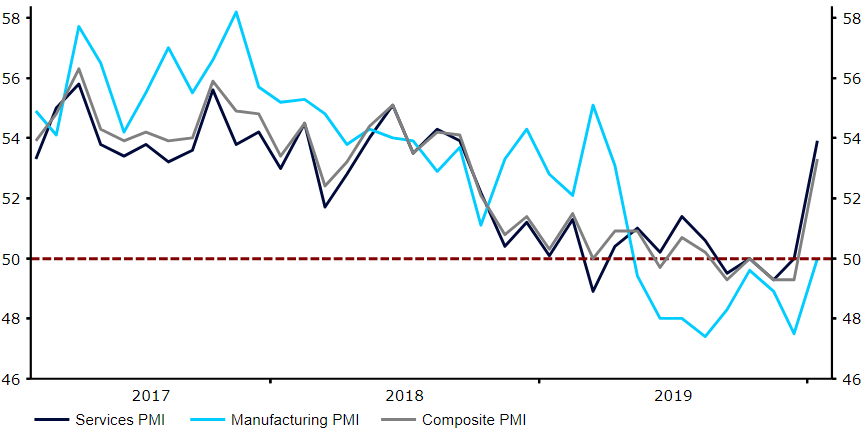Equity markets, risk assets rally on easing virus fears
- Go back to blog home
- Latest
Receding concerns surrounding the outbreak of China’s coronavirus helped lift risk appetite throughout financial markets on Tuesday.
Emerging markets also rose, while those higher risk major currencies most severely affected by the rout have rallied, the main beneficiary being the Australian dollar. AUD was also lifted higher following the RBA’s Tuesday meeting, in which the central bank left rates and its economic projections unchanged, noting that the coronavirus would only have a short-term impact on the global economy.
While the market has breathed a sigh of relief that the infection rate of the virus appears to be slowing and that the vast majority of cases are contained within China (more than 99%), concerns linger around the actually economic impact, which will not be felt for a little while yet. The People’s Bank of China has taken steps to allay the potential downside impact of the virus, cutting its seven day reverse repo rate by 10 basis points to 2.4% and injecting the equivalent of $175 billion liquidity into the banking sector.
Should it become clear in the next few weeks that the virus is having a bigger-than-expected negative impact on the Chinese economy then we may see risk assets back under pressure. But for now, the market is in a much more upbeat mood and central bankers around the world are not jumped to ease policy just yet.
Euro fails to benefit from stronger PMI data
It is perhaps somewhat surprising that the euro has not benefited a great deal from the recent easing in coronavirus fears and upbeat Euro Area data we’ve had so far this week.
Following on from Monday’s manufacturing PMI beat, this morning’s services index from Markit also trumped expectations. The index for January was revised higher to 52.5 from 52.2, lifting the composite index to a fairly comfortably expansionary 51.3. As we have noted frequently in the past few weeks, we are beginning to see signs of an uptrend and a bottoming out in European data that would suggest growth is more likely than not to surprise to the upside in the bloc in 2020. While this has not yet translated itself into a stronger euro, we think that it would do should recent surprises in the soft data filter their way through to an uptick in the hard data.
Sterling rallies on jump in UK services activity
As for the pound, the UK currency has managed to stabilise itself just above the 1.30 mark versus the dollar this morning, consolidating its losses from earlier in the week. This has been helped, in part, by this morning’s massive upward revision to the January services PMI, the preliminary estimate of which had already blown analysts’ expectations out of the water. The crucial index was revised up to 53.9 from 52.9, vindicating the Bank of England’s stance to keep interest rates unchanged at its meeting last week. This jump, we believe, is largely due to the removal of the short-term ‘no deal’ uncertainty following December’s general election.
Figure 1: UK PMIs (2017 – 2020)
Sterling had taken a pummeling on Monday after Boris Johnson warned that he would rather the UK walked away from the negotiating table with the EU than meet some of their demands. As mentioned yesterday, however, we think that this is largely another negotiating tactic from Johnson and given the recent stabilisation in the pound, much of the market appears to share the same view.


